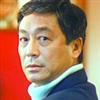
Kenneth Tsang
Kenneth Tsang was educated in the US in architecture, but soon became bored by the work after he returned to Hong Kong. His sister, Jeanette Lin Tsui, was a big star in HK during the 1960's, and so he used her connections to get acting jobs. Tsang first rose to prominence playing Wong Fei-Hung's assistant Leung Foon in a series of movies. After the series stopped in the 1970's, Tsang continued to work in kung fu movies, most times as a villain.
However, he is best known to many younger people from his heroic roles in many of John Woo's seminal "heroic bloodshed" movies of the 1980's, such as "The Killer". Tsang's fluency in Chinese and English has kept him busy working on both eastern and western productions; in addition to the dozens of HK movies he has appeared in, Tsang has been in quite a few notable Western films, such as the latest Bond movie, "Die Another Day".
Notable movies: The Killer, A Better Tomorrow, Peking Opera Blues
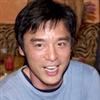
Kenny Bee
Kenny Bee got his start in the HK entertainment circle via music. He was in a 1970's band called The Wynners, and their success led to a series of Beatles-style films. After The Wynners broke up, Bee parlayed his good looks into a solo film career and made many movies through the 1980's and 1990's in almost every type of genre, though he found the most success in romantic comedies. Like many people in Hong Kong, Bee lost most of his savings during the real estate bust of the late '90's, and had to declare bankruptcy in 2003. Since then, he has continued to work both onscreen and in concert to try and clear his debts, and other stars in HK have even done benefit concerts for him.
Notable movies: My Heart is That Eternal Rose, Saviour of the Soul, Fist of Fury 1991
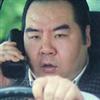
Kent Cheng
A two-time Hong Kong Film Award winner, Kent Cheng is one of the most recognizable and respected actors working in Hong Kong. He started on TV soap operas in the 1970's before moving to the big screen, when he has worked steadily as a writer, producer, director or actor (sometimes all in the same movie) for the last thirty years. Cheng suffered a heart attack a few years ago and was advised by his doctors to retire from the high-stress world of HK film-making, but he still appears in the odd role every now and then and continues to be fairly active behind the scenes as a producer.
Notable movies: Crime Story, Once Upon a Time in China, Run and Kill

Kristy Yeung (aka Kristy Yang)
Kristy Yeung was born in Shanghai and then moved to Toronto to attend school. Before going to college, she decided to enter the Miss Asia pageant, and won. Like most pageant winners, Yeung was offered a contract to appear on Hong Kong TV, where she appeared in ten series before moving on to film in 1996 with "Comrades, Almost a Love Story". The role caught the attention of prolific producer/director Andrew Lau, and she worked on a number of his productions, garnering a Hong Kong Film Award nomination for her work on "Portland Street Blues". With the decline of the HK film industry in recent years, Yeung has returned to working on TV series, but still makes an occassional appearance on the big screen.
Notable movies: The Duel, Portland Street Blues, A Man Called Hero
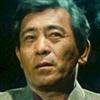
Ku Feng (aka Guk Fung)
Ku Feng hails from Shanghai, where he began his career as a singer. Ku moved to Hong Kong in the 1960's to try his hand at acting. After being signed by the Shaw Brothers studio, Ku appeared in dozens of kung fu pictures over the next two decades. As the popularity of the genre waned in the 1980's, Ku's output slowed down, but he still found work in a good number of movies during this period, where he usually played some sort of kindly old grandfather who could still kick your ass. He has, for the most part, retired from acting, only appearing sporadically the past few years.
Notable movies: Come Drink with Me, Peking Opera Blues, Magnificent Warriors
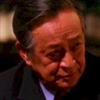
Kwan Hoi-Sang
Kwan Hoi-Sang first appeared in Hong Kong movies in the 1960's and appeared in dozens of films over the years. He is probably best known to many fans for his roles in many modern Triad movies, where he often played a "dai lo" (big brother, or head of a gang). In 2001, Kwan suffered a stroke and has subsequently retired from acting.
Notable movies: Hard Boiled, Project A, My Heart is that Eternal Rose
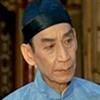
Kwan Tak-Hing
Regarded by many as the grandfather of onscreen martial artists, Kwan Tak-Hing began his film career in 1933. But it was his portrayal of folk hero Wong Fei-Hung in 1949's "The Legend of Wong Fei-Hung" that made him a true legend. The film, which tapped into Chinese nationalism and loyalty, was a huge hit for a people still reeling from the effects of WWII, and Kwan want on to portray Wong Fei-Hung in a series of seventy-seven films that lasted until the 1970's. Many of these films are still popular staples of late-night television in Hong Kong, but sadly, most of them have been heavily damaged or even lost forever due to poor storage.
Kwan was a prolific actor who worked on other films as different characters up until he was in his eighties, but he will forever be known to many Chinese people as the "real" Wong Fei-Hung, even after other actors like Jackie Chan and Jet Li took their own turn playing Wong. Part of this is due to the way he brought actual martial arts to the screen; before Kwan's appearance, most onscreen "fights" were simply filmed Peking Opera performances. But it is probably more because of the way Kwan lived his life.
A staunch defender of the Chinese nation, Kwan became a wanted man in WWII after touring the Chinese countryside, where he would put on performances with thinly-veiled anti-Japanese sentiments to try and bolster the spirits of his people. A lifelong practioner of traditional Chinese arts like kung fu and calligraphy, Kwan spent much of his time offscreen teaching these to young people. Kwan also wanted to bridge the chasm between the East and West and tried to improve race relations between the two cultures. Later in his life, Kwan married a Chinese-American woman, and, after his death in 1996 at the age of ninety, his ashes were laid to rest in America.
Notable movies: The Legend of Wong Fei-Hung, The Magnificent Butcher, Dreadnaught
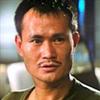
Lam Ching-Ying
Lam Ching-Ying began his career as a Peking Opera performer. Like most people working in the field during the late 1960's, Lam realized that the local audience was growing tired of opera, and so he began working as a stuntman for the Shaw Brothers studio when he was only seventeen years old. He quickly became tired of the Shaw's notorious cheapness, and so he jumped at the chance to move over to the upstart Golden Harvest studio via an invitation from Sammo Hung, who he had met during their time performing opera. Lam and Hung soon became close friends, and they worked on many films together over the next twenty years.
Lam eventually moved on to becoming a noted fight co-ordinator (a very prestigous post in Hong Kong film-making), but he also kept busy appearing in front of the camera as well, usually as a villain in Sammo's productions, and became a cult favorite due to his formidable kung fu skills. With his role in 1985's "Mr. Vampire", Lam became a bonafide star, which turned out to be a double-edged sword. His "ghost busting" movies were huge hits, but he soon found it hard for him to be taken seriously in any other kind of role. Still, Lam perservered on and created an impressive body of work during the 1980's and 1990's, before losing a battle with cancer in 1997.
Notable movies: Mr. Vampire, The Big Boss, Eastern Condors
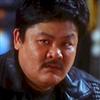
Lam Suet
Given his looks, Lam Suet probably never had any misconceptions of being a leading man while growing up in Tianjin, but he has become one of the most recognizable figures in modern Hong Kong movies, known for his deep talent (he has gotten several awards for his performances) and non-stop work ethic. Lam's career began in 1979, when he moved to Hong Kong to collect an inheritance from his grandfather -- which he quickly spent while hanging out at clubs and snooker halls.
After his money ran out, Lam took to working in a factory to make ends meet while playing snooker at night to relax. One of his opponents turned out to be Lam Ching-Ying, and the two quickly became friends. Ching-Ying got Suet his foot in the door of the HK film industry as a script supervisor. Lam's jovial on-set attitude soon gained him many other friends in the buisness, including Stephen Chow, who gave Lam his first big break with a role in "The God of Cookery".
But it was another friend, Johnnie To, which has made Lam the cult figure he is today. Since 1996, Lam has appeared in over twenty of To's movies, and it is with these roles that he gained international notariety. Even though he will probably be forever known as being "that guy" in To's films, Lam continues to be mone of the most prolific actors working in Hong Kong. At last count, he had over eighty films under his belt and it doesn't look like he will stop anytime soon.
Notable movies: The Longest Nite, Expect the Unexpected, A Hero Never Dies
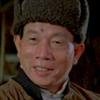
Lau Kar-Leung (aka Liu Chia Liang)
Lau Kar-Leung, widely regarded as one of the greatest kung fu actor/directors of all time, began learning martial arts at the age of seven from his parents, who were students of Wong Fei-Hung. His father, Lau Cham, worked for many years in films (most notably on a number of the Wong Fei-Hung pictures that starred Kwan Tak-Hing) and Kar-Leung followed in his footsteps, first as a stuntman and then later moving on to fight choreographer.
During the 1960's, Lau began working with legandary director Chang Cheh, and had a hand in many seminal kung fu movies of the period, such as "The One Armed Swordsman". After the death of Bruce Lee in 1974, local audiences fell out of favor with the "lone avenger" style of kung fu movies, and so Lau suggested to Chang that they create films that centered on teamwork and brotherhood.
The "Shaolin" movies the pair worked on were, for the most part, very popular, but Chang and Lau soon didn't see eye-to-eye on where the films were supposed to go. Thus, in 1975, Lau stuck out on his own to become a director. While this is fairly common in the HK industry now, at the time it was unheard of, and many wondered if Lau could truly work on his own.
Being "freed" from Chang seemed to unleash a flood of creativity from Lau and he began crafting a new style of kung fu movie that downplayed violence and placed more comedy in the proceedings, as well as making the films less masculine by making more starring roles for women. The results, which inculded "The 36th Chamber of Shaolin", were huge hits and are regared as classics of the genre. However, just as Lau was becoming one of the top directors in Hong Kong, a faster-paced, more "modern" style of kung fu movies directed by people like Yuen Woo-Ping was becoming the norm in Hong Kong, and Lau's more traditional fare lost momentum at the box office.
Lau continued to work through the 1980's, but often in small onscreen roles or directing lesser-known fare like "The Dragon Family". However, his fight against Sammo Hung in 1989's "Pedicab Driver" proved that Lau still had the skills to pay the bills; many fans feel that the scene is one of the best onscreen fights ever. In 1994, Lau's second chance at being a big-time director came with Jackie Chan's "Drunken Master II", a high-budget sequel to one of the most popular Hong Kong movies ever.
Almost right away, though, Lau and Chan didn't get along on the set. The clashes got so bad that Lau eventually left the production, disgusted at the new direction kung fu movies were taking. Combined with a bout of cancer (which he thankfully beat), Lau left the industry in the mid-1990's. Since then, he has returned with a couple of movies ("Drunken Monkey" and "Seven Swords") and a pledge to bring "real" martial arts action back to the big screen.
Notable movies: The Golden Swallow, The 36th Chamber of Shaolin, Drunken Master II

Lau Kar-Wing
Lau Kar-Wing is Lau Kar-Leung's brother and seems to have at least as much talent as him -- at least in the martial arts department -- but has never attained Kar-Leung's level of success. Like Kar-Leung, Kar-Wing began working for the Shaw Brothers studio as a stuntman before moving on to fight co-orindator, as well as appearing in front of the camera, where he usually played a wise-ass villain.
In 1976, Lau formed a production company with Sammo Hung and Karl Maka called Gar Bor, but the company folded after only a few productions. After that, his career was for the most part limited to small parts in Lau Kar-Leung or Sammo Hung's movies, though he did try his hand at directing several times with mixed results. Lau has now retired from the film scene, besides the very occaional appearance in lower-budget productions.
Notable movies: Millionaire's Express, My Lucky Star, Once Upon a Time in China
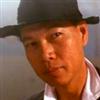
Law Kar-Ying
Law Kar-Ying, a former Cantonese opera performer, got his start in the very serious Jackie Chan movie "Crime Story" and has won a Hong Kong Film Award for his dramatic efforts. But he is best known for his comedic roles, most notably in several Stephen Chow movies (such as the emcee in "The God of Cookery") and abilty to curse profusely in English. In 2004, he was diagnosed with cancer, but seems to have beat the disease, and he quickly returned to acting, albeit in smaller roles.
Notable movies: 1941 Hong Kong on Fire, The God of Cookery, House of Fury

Lawrence Ng
Lawrence Ng is probably best known for his appearances in several of the more notorious Category III movies of the early 1990's, most notably "Sex and Zen". However, he has worked in a variety of genres, including comedy, swordsplay and drama. He seems to have left the HK film world in the late 1990's and now works primarily on TV series shot in China.
Notable movies: The Underground Banker, Sex and Zen, Dragon Inn
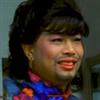
Lee Kin-Yan
Lee Kin-Yan, a school chum of Stephen Chow, has played a cross-dresser in so many of Chow's movies that he parodied himself in Wong Jing's Stephen Chow rip-off "Kung Fu Mahjong". Lee does actually do roles where he doesn't dress up like a woman, usually playing some sort of Triad thug.
Notable movies: Love on Delivery, From Beijing with Love, Kung Fu Mahjong
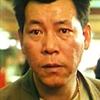
Lee Siu-Kei
The chances are good that if you're watching a Triad movie, Lee Siu-Kei will be in it. And looking at his big frame and grizzled face, it's easy to see why. There is also an ongoing rumor that Lee has some connection with the Triad, though no one (even the normally gossipy HK tabloids) have said exactly what that is. Even though he has the whole "tough guy" aura about him, Lee has displayed a flair for comedy, with roles in some of Stephen Chow's movies. Lee is also a prolific producer, and has written and directed several features of his own.
Notable movies: War of the Underworld, Young and Dangerous, The Storm Riders
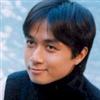
Leo Koo
A singer known as "The King of Falsetto" for his high voice, Leo Koo is also called one of the "Four Young Kings of Cantopop" (the other members being Daniel Chan, Stephen Fung and Nicholas Tse). Koo seems to have taken the route of Daniel Chan and has concentrated more on his singing career, though his onscreen work has generally been very solid.
Notable movies: Task Force, Love on Delivery, So Close
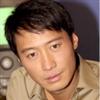
Leon Lai
If ever there was a divisive actor working in Hong Kong, Leon Lai would be it. He is one of the "Four Sky Kings of Cantopop" and hugely successful as a singer, and his movies usually do very well at the box office. However, he is regarded by many critics as being too wooden in his roles and nearly tone-deaf musically. Perhaps this is just jealousy from the fact that he used to date Hsu Chi, but at any rate, any mention of Leon Lai will probably bring up heated debate.
Lai was born in China, studied in England, and then moved to Hong Kong after graduation. He aspired to be a big star and began appearing in local talent shows. After taking second place in TVB's New Talent Contest, he began working on TV, as well as recording music. His early film roles were nothing special, but his popularity as a singer kept getting him roles, and during the 1990's, Lai seem to have hit his stride acting-wise, appearing in a series of blockbusters directed by everyone from Wong Jing to Wong Kar-Wai. Nowadays, Lai continues to act in high-profile projects, but mostly devotes his time to the musical part of his career.
Notable movies: City Hunter, Fallen Angels, A Hero Never Dies

Leslie Cheung
On April 1st 2003, Hong Kong lost one of its' biggest stars ever when Leslie Cheung committed suicide by jumping off of the roof of a hotel. The loss was all that much more shocking because Cheung always appeared to be in good spirits and could seemingly bring anyone out of the doldrums, both through his acting and his singing.
Cheung's death so touched Hong Kong that many businesses temporarily shut down, and many critics say that the film industry has never fully recovered, even after the initial mourning period. Along with the ongoing SARS epidemic and death later that year of fellow superstar Anita Mui, Cheung's passing marked a downturn in the local box office take that remains to this day.
It was well-known that Cheung was gay -- he regularly poked fun at his femininity on stage by dressing up in women's clothes and was almost always seen in public with his long-time boyfriend, Daffy Tang. Being openly gay would be career suicide for most anybody in the very macho culture of Hong Kong, but it never outwardly affected Cheung.
Everyone -- from teenyboopers to grandparents -- seemed to be able to put Cheung's sexuality aside and just appreciate him as an artist. Cheung's passion for life and performing always shone through, but it might be this very passion that led to his demise; it is rumored that Cheung (who had been suffering from depression) took his life after an argument in the hotel that Cheung later jumped from, where he found out his boyfriend cheated on him.
Cheung started out his career on the musical side of things. After placing second in a talent contest, he got a record contract and put out his first album in 1978. Soon after, Cheung began appearing in series on the TVB network, and moved to feature films within a couple of years. At this point in his career, Cheung's babyface had him pigeonholed into doing romantic comedies. His big break came in 1986 with a role in John Woo's "A Better Tomorrow". Cheung did a bit of everything -- drama, comedy, romance and even some gunplay -- and solidified himself as a major movie star.
Unlike many HK stars, who seem to take any role that comes around to try to keep themselves in the public eye, Cheung picked his roles carefully. He did his share of bankable Lunar New Year's-type comedies, but also took chances and worked on more "serious" movies, like the works of arthouse darling Wong Kar-Wai. This balancing act, along with continued success as a singer, made him popular with a wide range of fans.
Over the next fifteen years, he created an impressive body of work, including his last film, "Inner Senses". In an eerie parallel to his own life, Cheung plays a depressed man who climbs to a rooftop to contemplate suicide, but ultimately decides not to go through with it. Unfortunately, his own life did not have a happy ending, but the body of work he left behind will undoubetdly provide entertainment for years to come.
Notable movies: A Better Tomorrow, A Chinese Ghost Story, Inner Senses
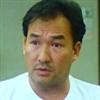
Leung Kar-Yan (aka "Beardy" Leung)
Though he is widely respected as one of the best of the "old school" kung fu actors, Leung Kar-Yan has actually never had any formal martial arts training. He began appearing in Shaw Brothers productions in the mid-1970's, and has rarely stopped working since. Even though he has never become a major star, Leung has shown an amazing ability to adapt to the times. When the kung fu genre died, Leung moved to more modern and comedic roles. And when the bottom of the box office boom fell out in the 1990's, Leung moved to working behind-the-scenes as a producer and director. His good friend Sammo Hung attributes this to Leung being very studious and a good "pupil" of the film industry -- supposedly, Sammo could show Leung a series of complex moves to do and Leung could get them with only one or two tries.
Notable movies: Knockabout, Dreadnaught, Tiger Cage

Lily Chung
Lily Chung won a beauty contest before starting work on several TVB series. Her first movie role was in the girls-with-guns flick "Midnight Angel". She moved on to the big-budget wuxia epic "The Bride with White Hair 2" and seemed destined to become a major star. Soon after, though, Chung began appearing in quite a few Category III movies, usually very rough ones like "Daughter of Darkness". It is quite hard for an actress to find mainstream work once they become known as a "Cat III girl", and Chung is no exception. After attempting to cross back over with a few roles in low-budget action and horror movies, she seems to have retired from acting around 2003.
Notable movies: Red to Kill, Daughter of Darkness, The Eternal Evil of Asia